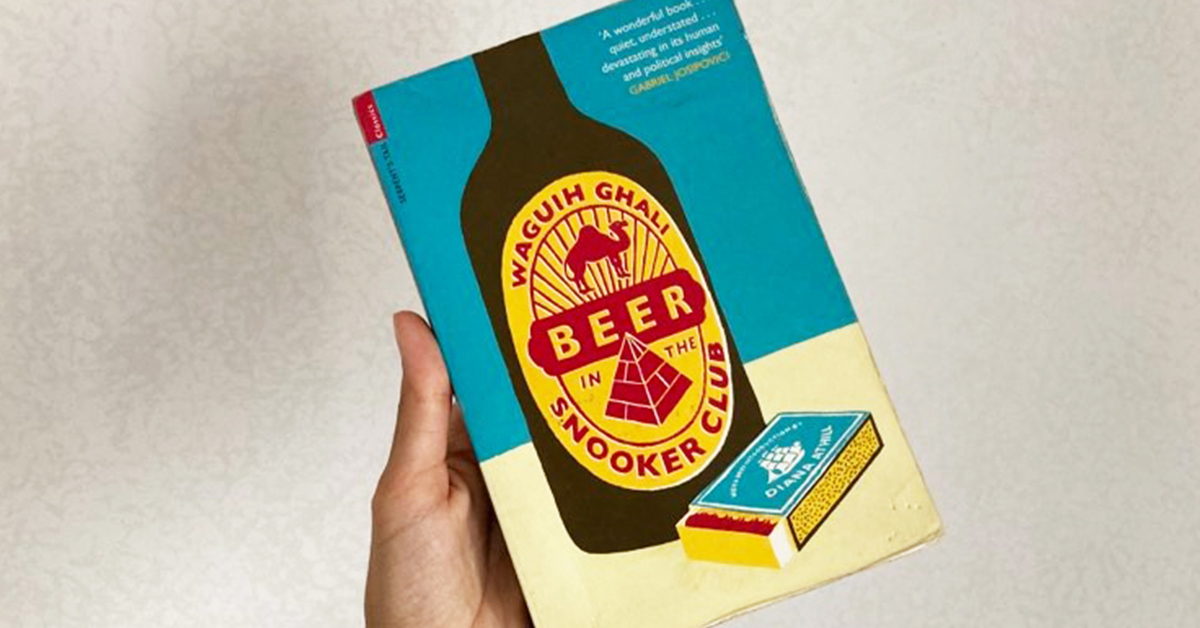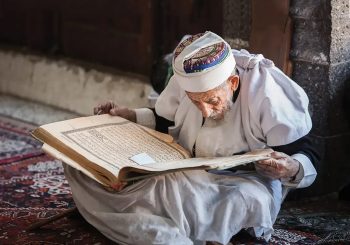
“Cairo and Alexandria were cosmopolitan not so much because they contained foreigners, but because the Egyptian born in them is himself a stranger to his land,” quotes a memorable line from Waguih Ghali’s timeless 1964 semi-autobiographical novel ‘Beer in the Snooker Club’.
Although this novel has been around for years, and many may already be familiar with it, it is one of those stories worth re-visiting- if only just to experience a glimpse of an Egypt that is vastly foreign to us, yet all too familiar all at the same time.
Ghali was a Coptic Egyptian writer from Alexandria who grew up during the politically charged era of Egypt’s transition from being a monarchy, occupied by Britain, to adopting a nationalist regime following the 1952 revolution and Gamal Abdel Nasser’s takeover.
Being one of the very few Egyptian writers of Coptic background, perhaps the only other Coptic Egyptian writer who is relatively known being fellow Alexndrian-bred fictional writer Edwar el Kharrat, this religious aspect also plays somewhat of a role in how Ghali perceived himself and the world around him.
His experience in growing up amidst this hodgepodge of culture and politics heavily influenced him on both a personal level, as well as on professional level as evident through his writing. In addition to this, Ghali also personally experienced financial struggles although most of his extended family were among the wealthy and influential upper class Egyptian society, which undoubtedly affected his way of thinking.
His experiences in life, whether it be the identity crisis he found himself growing up in during post-colonial Egypt or his own personal financial struggles, all marry together to create the character of Ram in Beer in the Snooker Club. As one travels through the novel’s events, it becomes more and more clear that Ram, the story’s protagonist, is loosely based on Ghali himself.
Beer in the Snooker Club mainly revolves around Ram, a British educated Egyptian who struggles to adapt to Gamal Abdel Nasser’s post 1952-revolution Egypt after having grown up in an Egypt greatly influenced by the British occupation. In some ways, it is a coming of age story and in others, it is a journey of self reflection and self discovery. Ram takes us through his personal journey of trying to understand where he stands in the world and whether it would be best for him to flee his own country or simply stay put and adapt to whatever changes are taking place.
Our protagonist finds himself speaking a mixture of English, Arabic and French as was the norm with wealthy families of the time. He is also caught between feeling a sense of nationalism towards his country while yearning for a western way of life, as that is what he was brought up to yearn, having been educated at a British school, surrounded by western ideas and encouraged to continue his studies in London.
This idea connects with the opening quote, of the review, from which we are made to realize how Ram views post-colonial Egypt, from which we are given a glimpse into early 1950s Egypt: a country whose people were caught between a foreign identity and that which is truly theirs… an Egypt that is trying to find its people. It is an Egypt divided into Egyptians who were brought up rarely speaking their own language and those who were brought up not knowing anything other than their own language.
Throughout the novel, Ghali intelligently paints vivid images of Ram’s Egypt – informative with history and politics, yet deeply, painfully and oftentimes humorously, personal with underlying struggle, self-doubt and even love.
Other than the fact that one can find themselves comparing Egypt of the past to Egypt nowadays through familiar things and venues such as the representation of the Groppi of the past (in which Ram goes regularly to enjoy a glass of whiskey or the like) to the Groppi we are loosely familiar with nowadays (whose days of serving alcoholic beverages are long gone), a particularly interesting sub-plot to Beer in the Snooker Club is actually Ram’s love interest.
In the story, Coptic Christian Ram falls in love with Jewish heiress Edna, a fellow Egyptian with similar thoughts and interests who happens to be the one to show Ram a different side to his hometown – a truer reflection of Egypt, in a way, rather than the society he was brought up in.
It is an interesting affair that reflects on both the many feelings and realizations that come with falling in love, as well as the political, cultural and even religious nature of 1950s Egypt.
All in all, without giving too much away, Beer in the Snooker Club is both a history lesson and a study of human psychology. Ghali allows us to delve into, and consider, just how deeply our society and culture affects us as individuals.
It is a powerful reflection on one’s identity and the various factors that affect it, putting into question the importance of having a strong sense of identity. In addition to this, Beer in the Snooker Club also acts as a sort of time capsule for post-colonial Egypt, reminding us all of just how much this country has been through, and just how much has changed and even perhaps how much hasn’t.







Comments (5)
[…] Back in the early 20th century, Groppi was once the go-to spots for Cairo’s elite, offering a variety of European desserts in addition to alcoholic beverages. This café and restaurant has been such a staple in Egyptian society throughout its recent history that almost anyone will recognize the name today. To get a slightly better feel of what Groppi was once like, one can read about this iconic spot in books such as Waguih Ghali’s Beer in the Snooker Club. […]
[…] Back in the early 20th century, Groppi was once the go-to spots for Cairo’s elite, offering a variety of European desserts in addition to alcoholic beverages. This café and restaurant has been such a staple in Egyptian society throughout its recent history that almost anyone will recognize the name today. To get a slightly better feel of what Groppi was once like, one can read about this iconic spot in books such as Waguih Ghali’s Beer in the Snooker Club. […]